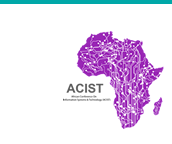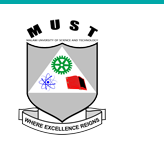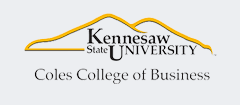Location
Malawi University of Science & Technology, Malawi
Start Date
25-8-2022 3:40 PM
End Date
25-8-2022 4:05 PM
Description
The use of data-intensive synchronous tutoring options, such as Zoom, can be exclusionary in South Africa where there is limited access to the internet in homes. The literature indicates the following challenges for electronic tutoring in South Africa: a lack of devices, high data costs, network connectivity issues, inadequate digital skills and competencies. To address the challenge of high data costs, a South African data-free mobile instant messenger was tested for electronic tutoring. The research model used the Technological Pedagogical Content Knowledge Framework (TPACK) as the theoretical basis. This research used a case study in a large, first-year accounting course of 496 students with fifteen tutors, at a historically disadvantaged institution. Qualitative data was collected from accounting tutors using a survey and purposive sampling. The data was analysed using thematic content analysis. The findings highlighted Technology Knowledge was key to using a mobile instant messenger to tutor effectively online. Tutors with good accounting Content Knowledge found it easier to use the data-free application to explain concepts. Tutors used their Pedagogical Knowledge to be more flexible and provide support to students after hours. Tutors indicated Technological Content Knowledge as they used the features of the data-free instant messenger students to assist student learning. Technological Pedagogical and Content Knowledge was evidenced by tutors’ use of multimodal approaches such as using voice notes and pictures to explain concepts to students at convenient times, even without data. However, students with Apple devices were still excluded. The findings from this study can assist in designing more inclusive student electronic tutoring interventions.
Included in
Towards more inclusive electronic tutoring: tutors’ experiences of using a data-free mobile instant messenger in a first-year accounting class
Malawi University of Science & Technology, Malawi
The use of data-intensive synchronous tutoring options, such as Zoom, can be exclusionary in South Africa where there is limited access to the internet in homes. The literature indicates the following challenges for electronic tutoring in South Africa: a lack of devices, high data costs, network connectivity issues, inadequate digital skills and competencies. To address the challenge of high data costs, a South African data-free mobile instant messenger was tested for electronic tutoring. The research model used the Technological Pedagogical Content Knowledge Framework (TPACK) as the theoretical basis. This research used a case study in a large, first-year accounting course of 496 students with fifteen tutors, at a historically disadvantaged institution. Qualitative data was collected from accounting tutors using a survey and purposive sampling. The data was analysed using thematic content analysis. The findings highlighted Technology Knowledge was key to using a mobile instant messenger to tutor effectively online. Tutors with good accounting Content Knowledge found it easier to use the data-free application to explain concepts. Tutors used their Pedagogical Knowledge to be more flexible and provide support to students after hours. Tutors indicated Technological Content Knowledge as they used the features of the data-free instant messenger students to assist student learning. Technological Pedagogical and Content Knowledge was evidenced by tutors’ use of multimodal approaches such as using voice notes and pictures to explain concepts to students at convenient times, even without data. However, students with Apple devices were still excluded. The findings from this study can assist in designing more inclusive student electronic tutoring interventions.



